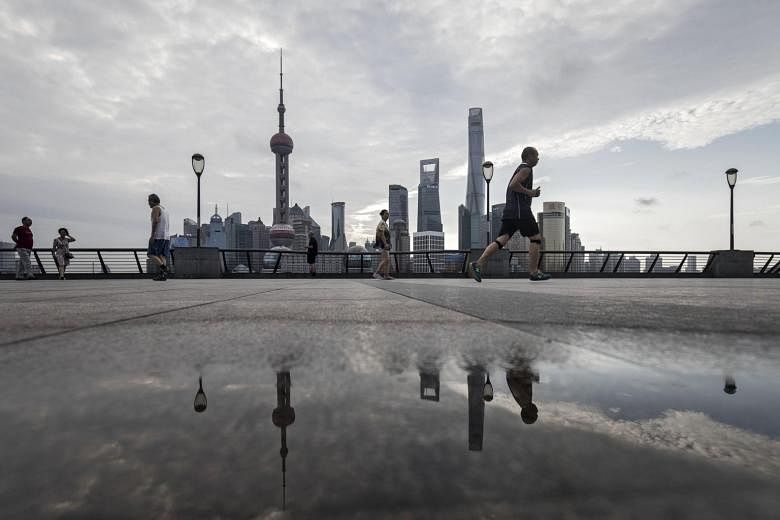BEIJING (BLOOMBERG) - The pace of China's economic expansion unexpectedly cooled further last month after a lacklustre July, as factory output, investment and retail sales all slowed last month.
Industrial output rose 6 per cent from a year earlier in August, versus a median projection of 6.6 per cent and July's 6.4 per cent. That's the slowest pace this year.
Retail sales expanded 10.1 per cent from a year earlier, versus a projection of 10.5 per cent and 10.4 per cent in July, also the slowest reading in 2017.
Fixed-asset investment in urban areas rose 7.8 per cent in the first eight months of the year over the same period in 2016, compared with a forecast 8.2 per cent rise. That's the slowest since 1999.
The continued cooling of the world's second-largest economy suggests that efforts to rein in credit expansion and reduce excess capacity are hitting home ahead of the key 19th Party Congress in October. Still, producer-price inflation and a manufacturing sentiment gauge both exceeded estimates earlier this month, signaling some resilience.
The Shanghai Composite Index pared gains after the data releases, as did the Australian dollar.
"Today's data shows that the economy clearly already peaked in the first half of this year," said Larry Hu, head of China economics at Macquarie Securities in Hong Kong. "Recently both property and exports are slowing down and that's why the whole economy is slowing."
"Regulatory tightening in the financial sector is putting a squeeze on highly indebted firms reliant on shadow bank financing," said Frederic Neumann, co-head of Asian economics research at HSBC Holdings in Hong Kong. "And officials are unlikely to take their foot off the regulatory brakes any time soon. Growth therefore looks set to weaken further into year end, as regulators step up their campaign to rein in shadow banking."

